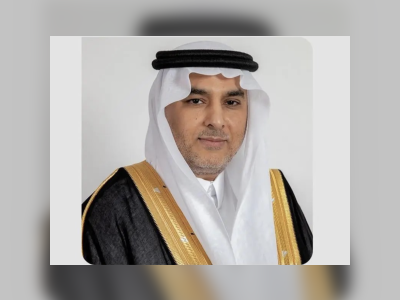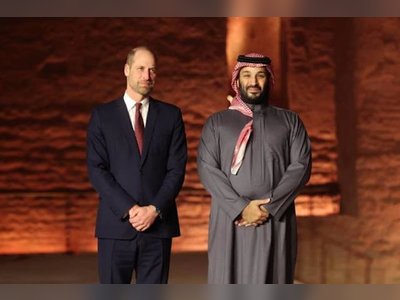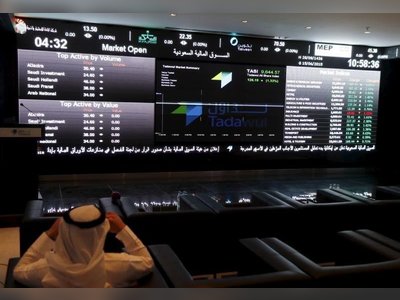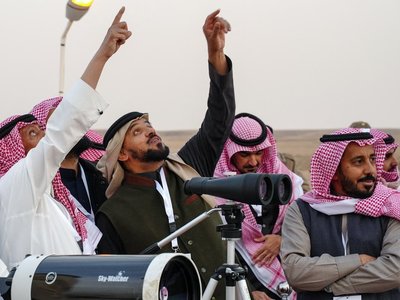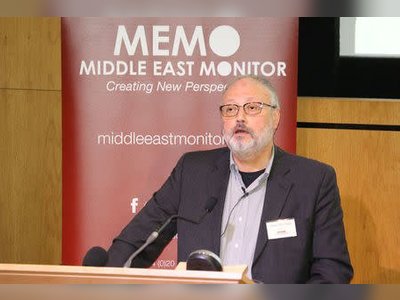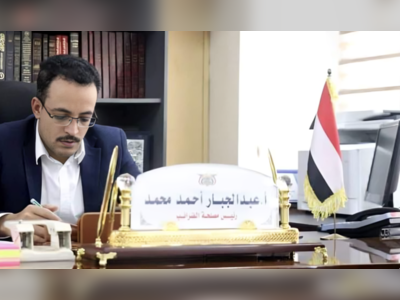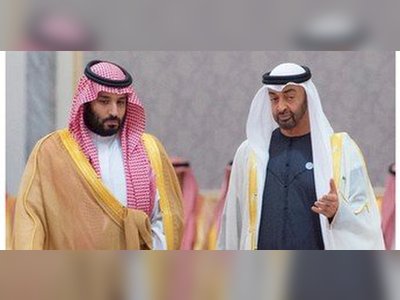COP29 Climate Talks: Developing Nations Demand $1.3 Trillion for Adaptation as Global Tensions Flare
COP29 negotiators in Baku aim to secure a climate finance deal as developing nations demand $1.3 trillion for adaptation efforts, with EU contributions criticized as insufficient. Meanwhile, Trump's proposal to dismantle the Department of Education sparks debates on federal funding and education reform.
At the United Nations annual climate talks known as COP29 in Baku, negotiators face pressure to secure a financial deal, as developing nations demand up to $1.3 trillion for climate adaptation efforts, far exceeding what wealthier countries have been willing to offer. Meanwhile, the European Union's suggested contribution of $200 billion to $300 billion annually has been criticized as falling short of what is truly needed.
As discussions on climate funding continue, President-elect Donald Trump is making waves with his proposal to dismantle the Department of Education, appointing Linda McMahon to lead amid contentious debates over the future of student loans and civil rights in education. Trump's plans to redirect or reduce federal funds, particularly from programs on diversity or critical race theory, signal significant shifts ahead for the education system.
Turning to Australia, the government has sparked debate by proposing a social media ban for children under 16 to address online safety, with political support balanced against privacy concerns from experts. This legislation is under scrutiny, especially regarding the effectiveness of identity verification and its implications for young users' privacy.
In the Middle East, tensions rise as Israeli operations in Gaza escalate, resulting in the deaths of at least 15 Palestinians and putting enormous strain on the local healthcare system. Amidst these challenges, Israeli Prime Minister Benjamin Netanyahu's stance on eradicating Hamas faces diplomatic hurdles, as ceasefire efforts led by Qatar struggle against mutual demands.
In a similar region but a different context, Iran offers to cap its uranium enrichment at 60% to deter further IAEA censure, yet Western skepticism remains high due to Iran's track record. This proposal appears as an effort to avoid international confrontation, although historical non-compliance casts long shadows over its credibility.
Lastly, Iraq embarks on its first national census in over 35 years, aiming to enhance resource allocation and planning while carefully navigating political sensitivities. By employing modern technologies and including international observers, Iraq seeks to provide an unbiased demographic snapshot, although the endeavor raises discussions around its potential impact on minority groups and sectarian dynamics.
As discussions on climate funding continue, President-elect Donald Trump is making waves with his proposal to dismantle the Department of Education, appointing Linda McMahon to lead amid contentious debates over the future of student loans and civil rights in education. Trump's plans to redirect or reduce federal funds, particularly from programs on diversity or critical race theory, signal significant shifts ahead for the education system.
Turning to Australia, the government has sparked debate by proposing a social media ban for children under 16 to address online safety, with political support balanced against privacy concerns from experts. This legislation is under scrutiny, especially regarding the effectiveness of identity verification and its implications for young users' privacy.
In the Middle East, tensions rise as Israeli operations in Gaza escalate, resulting in the deaths of at least 15 Palestinians and putting enormous strain on the local healthcare system. Amidst these challenges, Israeli Prime Minister Benjamin Netanyahu's stance on eradicating Hamas faces diplomatic hurdles, as ceasefire efforts led by Qatar struggle against mutual demands.
In a similar region but a different context, Iran offers to cap its uranium enrichment at 60% to deter further IAEA censure, yet Western skepticism remains high due to Iran's track record. This proposal appears as an effort to avoid international confrontation, although historical non-compliance casts long shadows over its credibility.
Lastly, Iraq embarks on its first national census in over 35 years, aiming to enhance resource allocation and planning while carefully navigating political sensitivities. By employing modern technologies and including international observers, Iraq seeks to provide an unbiased demographic snapshot, although the endeavor raises discussions around its potential impact on minority groups and sectarian dynamics.
